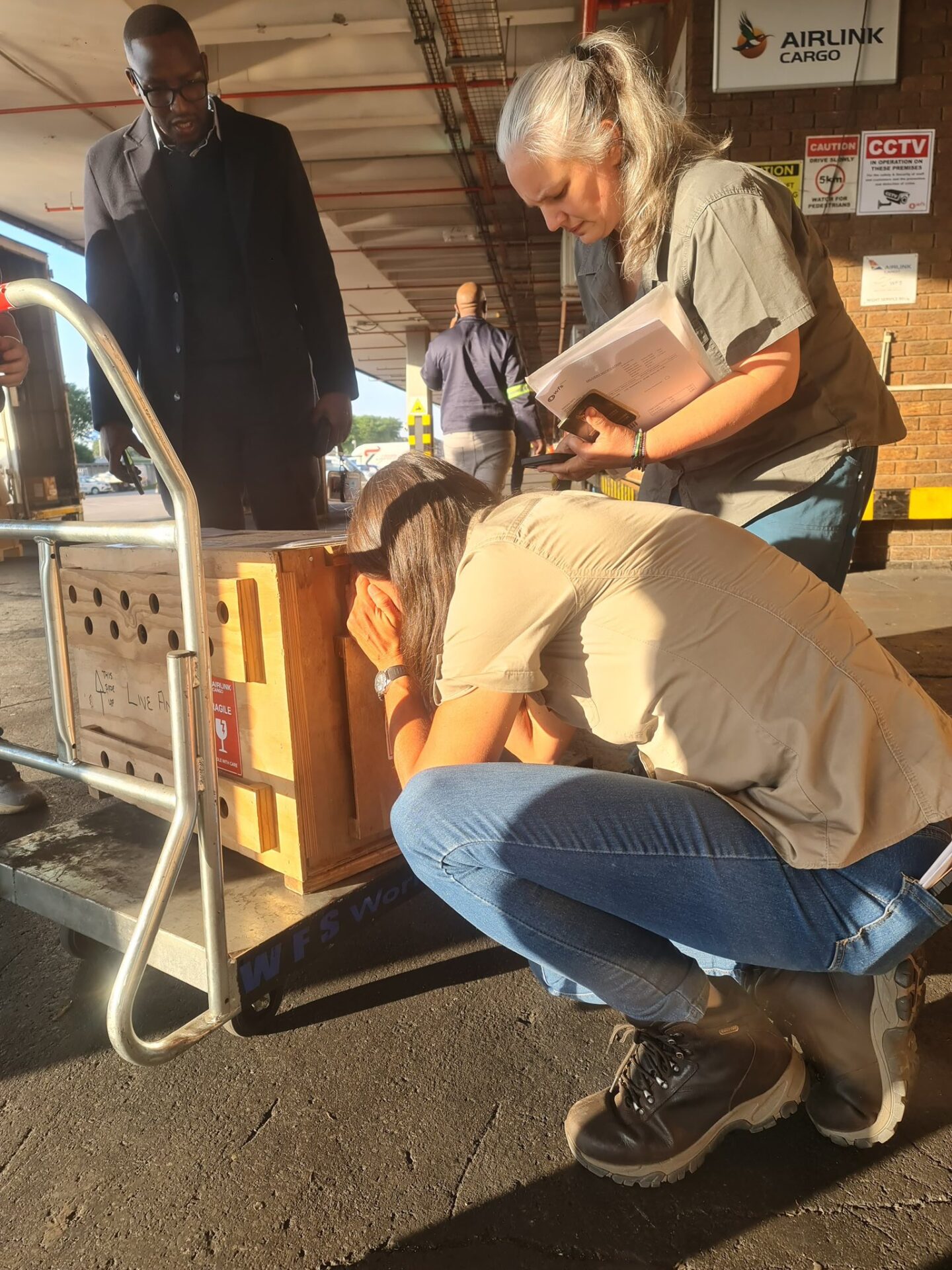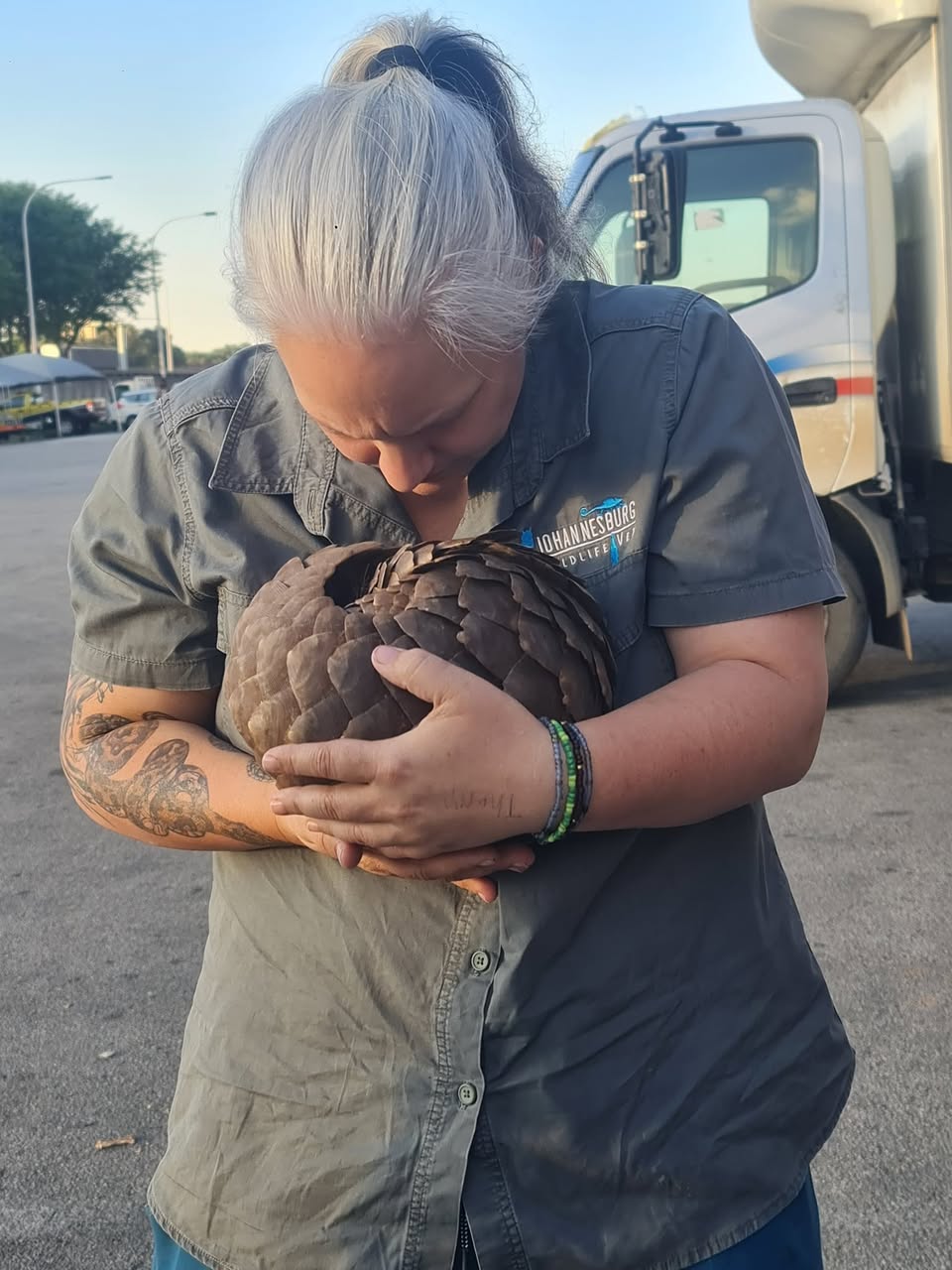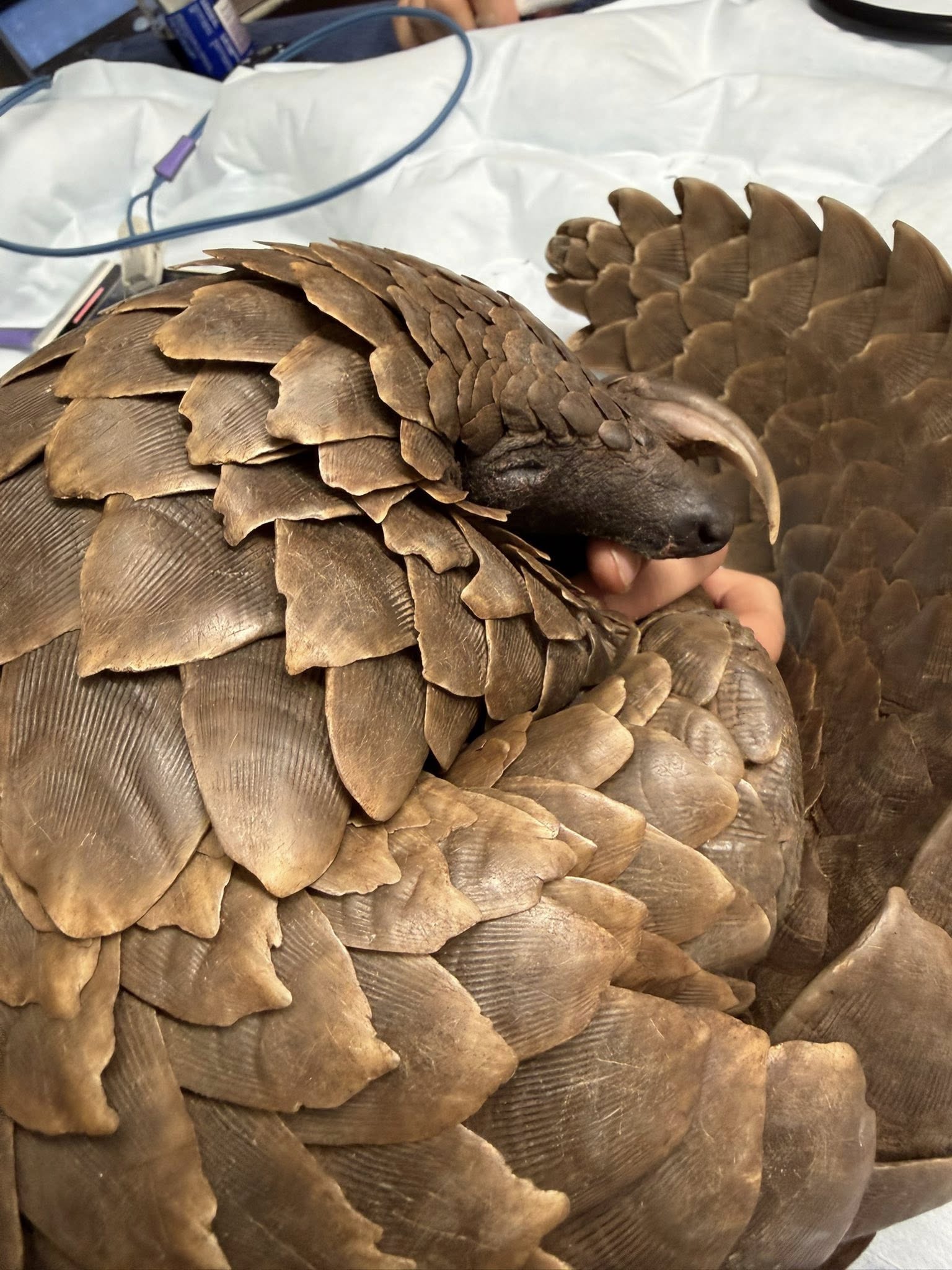A tiny pangolin, stolen from the wild and hidden in a box, has been given a fighting chance at life thanks to a chain of South Africans who acted with heart, urgency and unwavering compassion.
Johannesburg, South Africa (27 November 2025) – If you ever needed proof that kindness can cut through the darkest corners of our country, this is it. A young pangolin, scared, injured and stolen from the wild, has been given a second chance thanks to a handful of people who simply refused to give up on her.
Pangolins are the most trafficked mammal on earth. More than elephants. More than rhinos. Their scales, made of simple keratin, the same material as our fingernails, are wrongly believed to have medicinal value in certain markets. That belief has unleashed one of the most devastating illegal trades in the world, pushing pangolins dangerously close to extinction.
So when one is found alive… it matters.
Deeply.
During a routine roadblock outside Beaufort West, SAPS officers spotted something that didn’t sit right. A sealed box hidden in the boot of a vehicle. Inside was a tiny pangolin, terrified, dehydrated and carrying the injuries that come with being poached. A discovery like this could easily have been missed. But those officers didn’t look away. They acted.
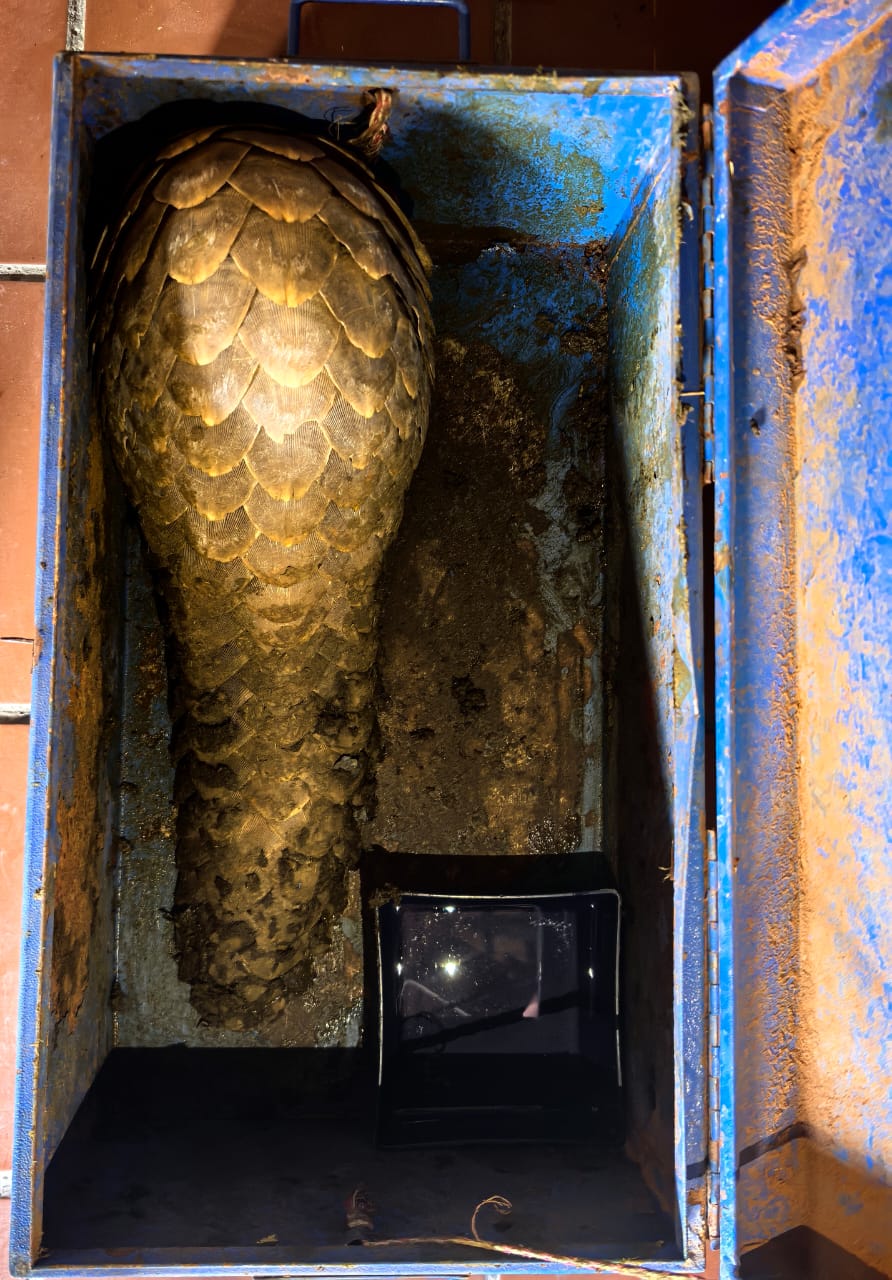
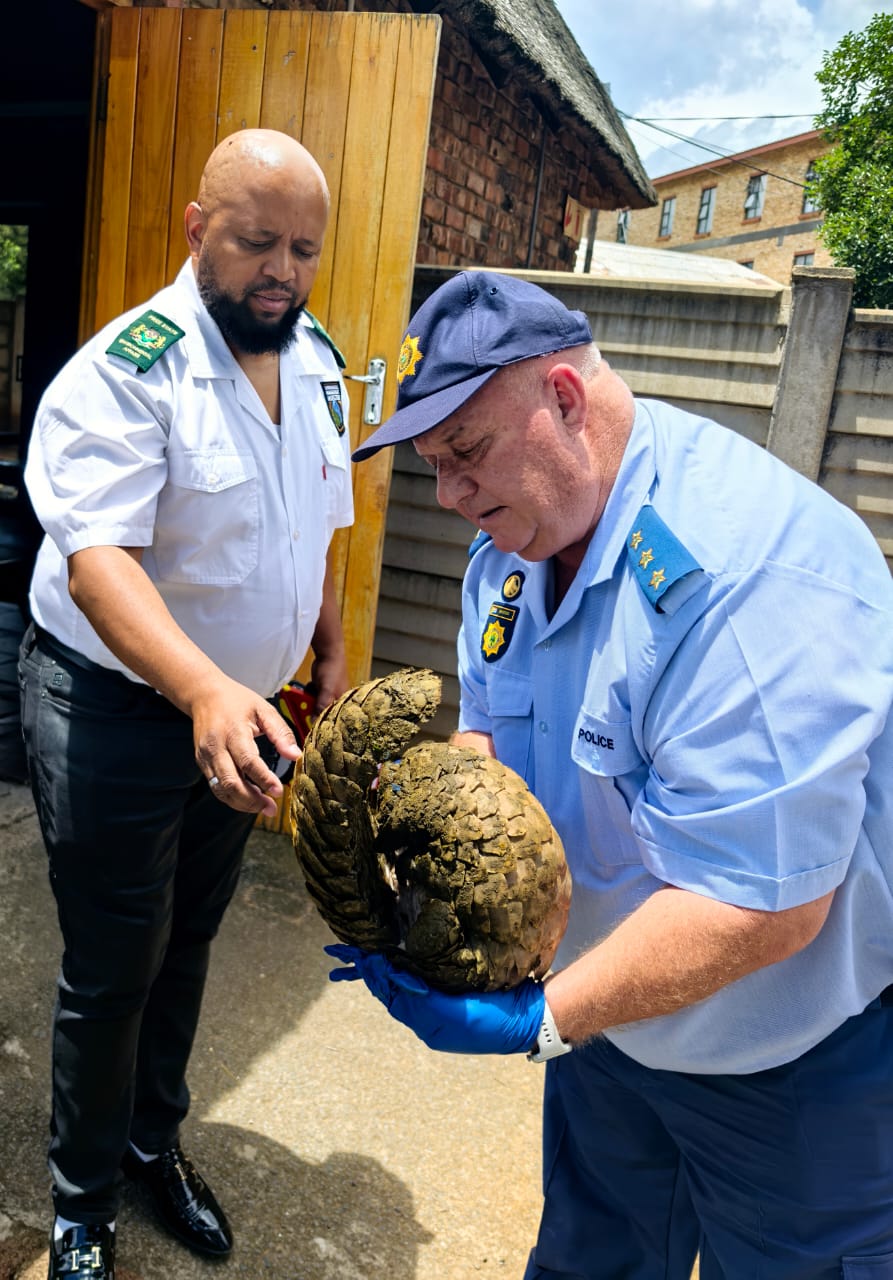
Johannesburg Wildlife Veterinary Hospital (JWVH) was alerted immediately. CapeNature stepped in next, rushing the fragile juvenile to a vet in Oudtshoorn, where she was stabilised under the remote guidance of JWVH’s expert pangolin team. It was the first crucial step in pulling her back from the edge. When she was finally strong enough to travel, Airlink and Impact for Wildlife joined the effort, flying both the pangolin and her CapeNature guardian to Johannesburg. From there, she was taken straight to JWVH’s dedicated pangolin facility, a place where some of the most traumatised pangolins in the country get a real shot at recovery.
And this is where the heart of the story lives. Ordinary people, across provinces and organisations, stepping up without hesitation. Law enforcement noticing something small. Conservation professionals responding instantly. Airline teams mobilising to move a wild animal safely. Veterinarians preparing for a case that requires world-class specialist care.
The Johannesburg Wildlife Veterinary Hospital does remarkable work for South Africa’s wildlife. Quiet work. Consistent work. They treat pangolins, genets, owls, bushbabies, and countless injured or orphaned wild creatures, always with expertise, always with compassion and never charging a cent.
And their success stories are nothing short of extraordinary.
“She remains in a critical condition, but our team is cautiously optimistic,” JWVH said. “With time, expert care, and the resilience that pangolins so often show, we hope to return her – fully recovered – back to the wild where she belongs.”
And that’s why this rescue matters. Because every pangolin saved chips away at the illegal wildlife trade. Every intervention proves that South Africans can disrupt the cruelty that threatens our natural heritage. And every partnership like this one reminds us just how much good can happen when enough people refuse to look away.
One rescue won’t end wildlife trafficking. But each one shifts the story. Each one proves that compassion still wins. And sometimes, that’s more than enough to change a life.
